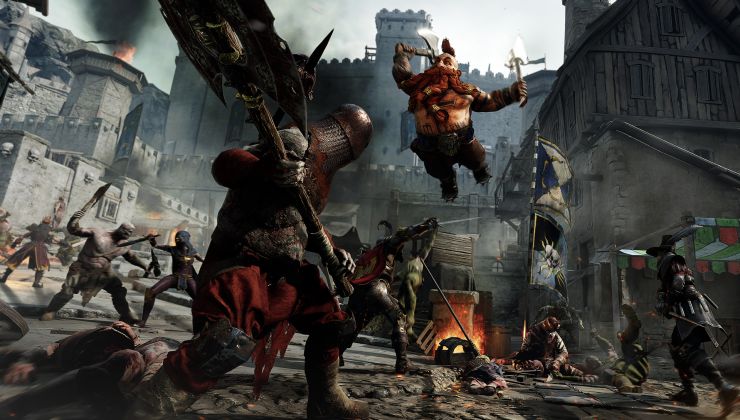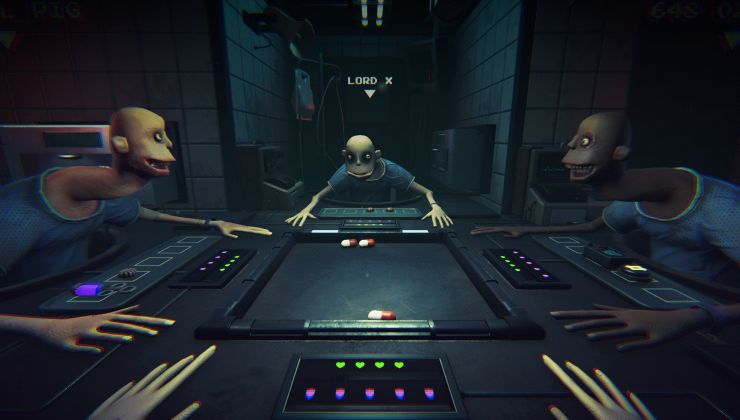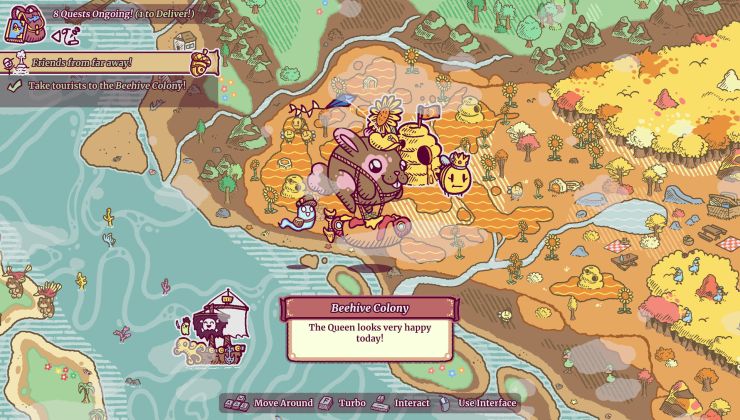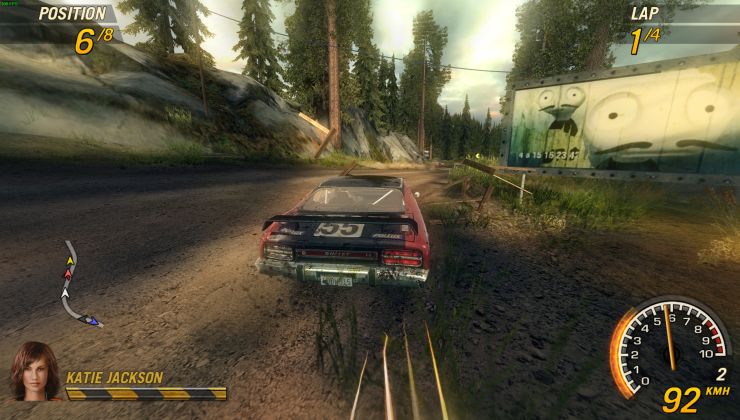While there are issues with the Deck Verified system, Valve continues on noting down more titles as being either Deck Verified or Playable.
As of publishing time there's now 1,214 going by Valve's own list, which is a huge number for a gaming device that has only just recently released. With 660 Verified and 554 Playable. One of the biggest titles to appear recently of course was Apex Legends, the massively popular Battle Royale.
Remember though: not being Verified or Playable doesn't mean it won't work, it just means it hasn't been through Valve's formal certification yet.
For games to be fully Verified they need to hit these marks:
- Input - The title should have full controller support, use appropriate controller input icons, and automatically bring up the on-screen keyboard when needed.
- Display - The game should support the default resolution of Steam Deck (1280x800 or 1280x720), have good default settings, and text should be legible.
- Seamlessness - The title shouldn’t display any compatibility warnings, and if there’s a launcher it should be navigable with a controller.
- System Support - If running through Proton, the game and all its middleware should be supported by Proton. This includes anti-cheat support.
There are still some lingering questions I have about it, now I've been testing for multiple weeks: like how they test the performance? As I've been through multiple games that are fully Verified that drop well below 30FPS. I hope this is something they will improve as testing continues.
Also, today, I had a chat with Jason Evangelho from Forbes / Linux4Everyone, Nick from The Linux Experiment and Gardiner Bryant who have all also been reviewing the Steam Deck. Expect some videos and audio over the next few weeks from our chat on the Steam Deck, Valve, Linux and plenty more.
Quoting: CatKillerDo we have means to filter these (or get counts) by reason of being Unsupported?Quoting: adibuyonoWonder how many titles noted as unplayable?[775](https://steamdb.info/instantsearch/?refinementList%5Boslist%5D%5B0%5D=Steam%20Deck%20Unsupported).
Quoting: questioner9True, but on the other hand it seems like a lot of the "Unsupported" are sort of barely/temporarily Unsupported, where there's some little bug that could be fixed next Proton version and then they'll have to revisit it. And some of the Playable may see work by the developers to upgrade them, so they'll have to revisit those ones too. So they are also in a way going through the catalogue at a slower pace than 40/day, or will be as the false negatives start to accumulate.Quoting: Purple Library GuyOK, so the article saying they hit a thousand games came out 5 days ago. So, 5 days to do 200 games, pace of 40 games/day.Remember that's figures for Verified/Playable only, Unsupported is still a rating that means a game has been processed (albeit not a rating we want to see). So they are getting through the catalogue at a faster pace than 40/day generating a verified/playable additional 40/day.
That's not bad. But at that pace, in a year they would do 14,600 games. How many games are in the Steam catalogue again? And how many come out in a year these days? They need to ramp it up a bit if they want to be able to say anything about the Deck running all your games.
Quoting: EikeYou can tell SteamDB's filter to exclude any that are VR-only (although you still end up with some VR games in the filtered list) which is the majority of the Unsupported ones. But of the remainder there's generally just a non-specific "Valve are working on it" as the reason.Quoting: CatKillerDo we have means to filter these (or get counts) by reason of being Unsupported?Quoting: adibuyonoWonder how many titles noted as unplayable?[775](https://steamdb.info/instantsearch/?refinementList%5Boslist%5D%5B0%5D=Steam%20Deck%20Unsupported).
Quoting: Purple Library GuyYes good point, re-rating things up as developers fix issues or indeed checking game updates don't break existing verified; if I understand correctly that a verified rating isn't guaranteeing a commitment by the developer to keep it working with Proton in future game updates.Quoting: questioner9True, but on the other hand it seems like a lot of the "Unsupported" are sort of barely/temporarily Unsupported, where there's some little bug that could be fixed next Proton version and then they'll have to revisit it. And some of the Playable may see work by the developers to upgrade them, so they'll have to revisit those ones too. So they are also in a way going through the catalogue at a slower pace than 40/day, or will be as the false negatives start to accumulate.Quoting: Purple Library GuyOK, so the article saying they hit a thousand games came out 5 days ago. So, 5 days to do 200 games, pace of 40 games/day.Remember that's figures for Verified/Playable only, Unsupported is still a rating that means a game has been processed (albeit not a rating we want to see). So they are getting through the catalogue at a faster pace than 40/day generating a verified/playable additional 40/day.
That's not bad. But at that pace, in a year they would do 14,600 games. How many games are in the Steam catalogue again? And how many come out in a year these days? They need to ramp it up a bit if they want to be able to say anything about the Deck running all your games.
Quoting: SolitaryLinux gamers aren't that different from other people. If some game is so dead that nobody has been playing it then I doubt there is any significant number of Linux gamers waiting for it...you wait 10 years to play an game, then the argument become:
oh, its an old game, no one play it anymore.
yeah, it wasnt so old back then ¬¬
"not even linux users play it"
maybe we would if it runs.
sigh, i understand the valve side, but its frustrating to wait so long for something to work, only to realize it was in vain.
Quoting: elmapulyou wait 10 years to play an game, then the argument become:You are taking my words out of context though. I never specified that this necessarily concerns old games, if those old games used to be popular then they are still highly visible, even if maybe more down the line then current popular games (obviously). VVVVVV is 12 years old game, it already has rating. Last year came out over 11000 games of which unspecified number is probably not even relevant (removed, or only chinnese), but only 4000 of them had at least 10 or more peak players and about 6000 have at least 10 or more (sum of all) reviews (numbers according to SteamDB).
oh, its an old game, no one play it anymore.
yeah, it wasnt so old back then ¬¬
"not even linux users play it"
maybe we would if it runs.
Quoting: elmapul... but its frustrating to wait so long for something to work, only to realize it was in vain.What do you mean? How is rating related to something (game?) working? Is the game not runnable currently? I might be misunderstanding your frustration, but you do know that you can play games that are not yet rated, right?
Quoting: Solitary, but you do know that you can play games that are not yet rated, right?of course i know this, i was complaining about protonDB not being realible before this rating was a thing.









 How to setup OpenMW for modern Morrowind on Linux / SteamOS and Steam Deck
How to setup OpenMW for modern Morrowind on Linux / SteamOS and Steam Deck How to install Hollow Knight: Silksong mods on Linux, SteamOS and Steam Deck
How to install Hollow Knight: Silksong mods on Linux, SteamOS and Steam Deck